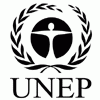Community / Land projects / Inclusive Conservation Initiative
Inclusive Conservation Initiative

€39833460.01
02/22 - 10/27
Active
This project is part of
Implementing Organisations
Donors
Data Providers
Objectives
Enhance Indigenous Peoples’ and Local Communities’ (IPLCs) efforts to steward land, waters and natural resources to deliver global environmental benefits.
Other
Note: Disbursement data provided is cumulative and covers disbursement made by the project Agency.
Target Groups
Improved management of forest, grasslands and marine ecosystems will generate a range of socio-economic benefits including contributions to enhanced food security and livelihoods across the set of ICI subprojects. Habitat conservation will also contribute to maintenance of key environmental provisioning services for a range of non-timber forest products (NTFPs) and other nature-based products. ICI grants will support activities that unlock or generate the financial resources IPLCs need to sustain their livelihoods and roles as environmental stewards. Depending on the particular subproject, this may include income-generating sustainable production activities (e.g. niche natural food products, improved livestock management, ecotourism) or innovative and culturally appropriate financing mechanisms such as IPLC trust funds and payments for ecosystem services. Several suproject EOIs indicated interest in developing community funds and other benefit-sharing mechanisms, as well as savings and credit groups. Other illustrative measures include targeted assistance to small and medium IPLC enterprises for enterprise development and to connect owners to mainstream financing. Activities will include a focus on women’s economic empowerment, and be oriented to benefit IPLC women and men through long-term approaches that enable self-determined land and resource governance and help reduce dependence on external donor support. A crucial aspect of socioeconomic benefits under the ICI will be cultural benefits. Several subproject EOIs indicated interest in recording and disseminating traditional knowledge, ranging from resource management practices to food production to customary rites. Documenting customary land use and land rights, as well as efforts focused on language preservation also reflect important cultural benefits. Some subprojects may consider mapping sites of current and archaeological cultural significance, as an input into designing suitable management arrangements. Finally, intergenerational cultural benefits are anticipated from efforts to disseminate traditional skills and knowledge (e.g. medicines, handicrafts, rites and language) to youth. Detailed plans, metrics, targets and M&E provisions with respect to cultural benefits will be elaborated in each subproject Impact Strategy. Specific on-the-ground activities to generate socioeconomic benefits will be determined during the first phase of implementation, through the preparation of Impact Strategies for each subproject (Output 1.1.2). Although the final sets of activities and their details cannot be determined before inclusive participatory planning processes are complete (including feasibility assessment, value chain analysis, etc.), the EOIs submitted by the selected subprojects anticipate the following indicative types of activities and benefits (see ProDoc Appendix X for a complete listing): Annapurna Conservation Area · Develop IPLC-based green enterprises · Promote Payments for Ecosystem Services · Identify diversified financial mechanisms, benefit-sharing mechanism on ACA revenues established and economic measures implemented to enhance economic resilience of IPLCs. DR Congo · Mapping of traditional areas of IPLCs · Reinforce legal status of IPLC claims to traditional territories · Develop strategies to strengthen socioeconomic resilience · Income generating activities based on sustainable management of biodiversity (e.g. NTFPs, artisanal products, agriculture, local tourism) Ewaso Ng’iro River Basin · Support legal recognition for community land and registering community conservancies · Develop management plan for pastoralist community governance of land and resources, including community benefits. · Create a Knowledge Centre to ensure intergenerational flow of knowledge and share knowledge with other stakeholders Futa Mawiza Biocultural Territory · Elaborate community plans and projects to protect territory · Investment in projects prioritized by each community (e.g. tourism, ecological production, food sovereignty, inventory and safeguarding of seeds) · Implement projects to strengthen conservation of the Futa Mawiza territory (e.g. tourism network, exchange networks) Lau Seascape and Cook Islands · Document cultural knowledge and heritage of IPLC · Develop toolkit to support islanders in applying traditional food production practices · Strengthen financial and project management capacity of IPLCs Northern Tanzania · Train and coach village councils and CBO’s in management and use of community funds generated by carbon offset sales · Train and coach savings and credit groups targeting women and youth · Develop sustainable natural resource-based income generating activities (e.g., beekeeping, traditional medicine, livestock fattening) Ru K'ux Abya Yala · Develop indigenous territorial management plans · Market added value products from indigenous enterprises · Strengthen technical and administrative capacity in community enterprises Southern Amazon · Documentation, mapping and demarcation of ancestral lands · Document and promote traditional knowledge and practices to ensure food sovereignty, climate change mitigation, and biodiversity loss · Invest in sustainable community livelihoods Thailand · Prepare land-use maps based on traditional customs/knowledge, and support sound practices for resource, water, forest and fire management, as well as food security · Promote sustainable nature-based livelihoods (e.g. bee keeping, eco-tourism, handicrafts and animal raising)




